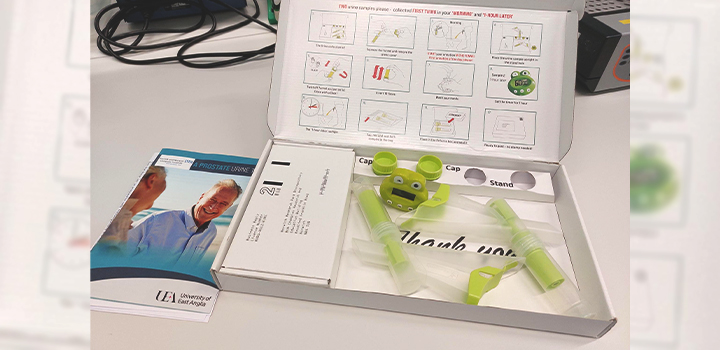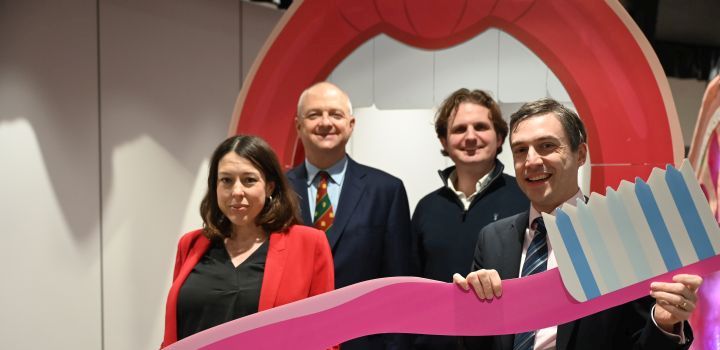BBC film with UEA experts working on a potential ‘game-changer’ in the fight against prostate cancer
By: Communications

A film crew from BBC Look East recently visited the Bob Champion Research and Education Centre to interview Professor Colin Cooper about developments in the diagnosis of prostate cancer that are being labelled a potential ‘game-changer’.
The current PSA test, which requires a blood sample, is accurate at detecting the cancer which around one in eight men in the UK will develop, however it isn’t able to determine the severity of the cancer, and whether treatment is required, with many men able to live with the more harmless form without intervention.
The two key developments from the team at UEA, which includes Prof Colin Cooper and Dr Rachel Hurst, is a home urine-testing kit which is able to identify the existence and severity of prostate cancer, called the Prostate Urine Risk (PUR) test, and a type of biopsy analysis called the ‘tiger test' which explores a person’s genetics for clues to more aggressive types of the disease.  Image: The Prostate Urine Risk test which can be completed in the comfort of the home
Image: The Prostate Urine Risk test which can be completed in the comfort of the home
It is hoped the PUR test, which is currently going through accreditation, will become available next year, with a regional trial in the works at the Norfolk and Norwich University Hospital, before possibly being expanded UK-wide afterwards.
The exciting developments at the Bob Champion Research and Education Centre over the past eight years have been made possible thanks to £8m in grants and charitable donations, much of which has been driven by the work of the Development, Alumni and Campaigns team.
Related Articles

UEA’s new high‑tech anatomy suite on schedule to open to students in September 2026
The University of East Anglia’s new high‑tech anatomy suite is on track to open to students in September 2026.
Read more
Norfolk MPs call on Government to urgently prioritise ‘underserved’ dental areas
A group of Norfolk MPs, all representing different political parties, have come together to call unanimously for the Government to prioritise the East of England in dental training.
Read more
UEA launches study after supplement shows promise in professional racing drivers
Researchers at the University of East Anglia (UEA) are launching a new study to see whether American ginseng extract could boost brain health.
Read more